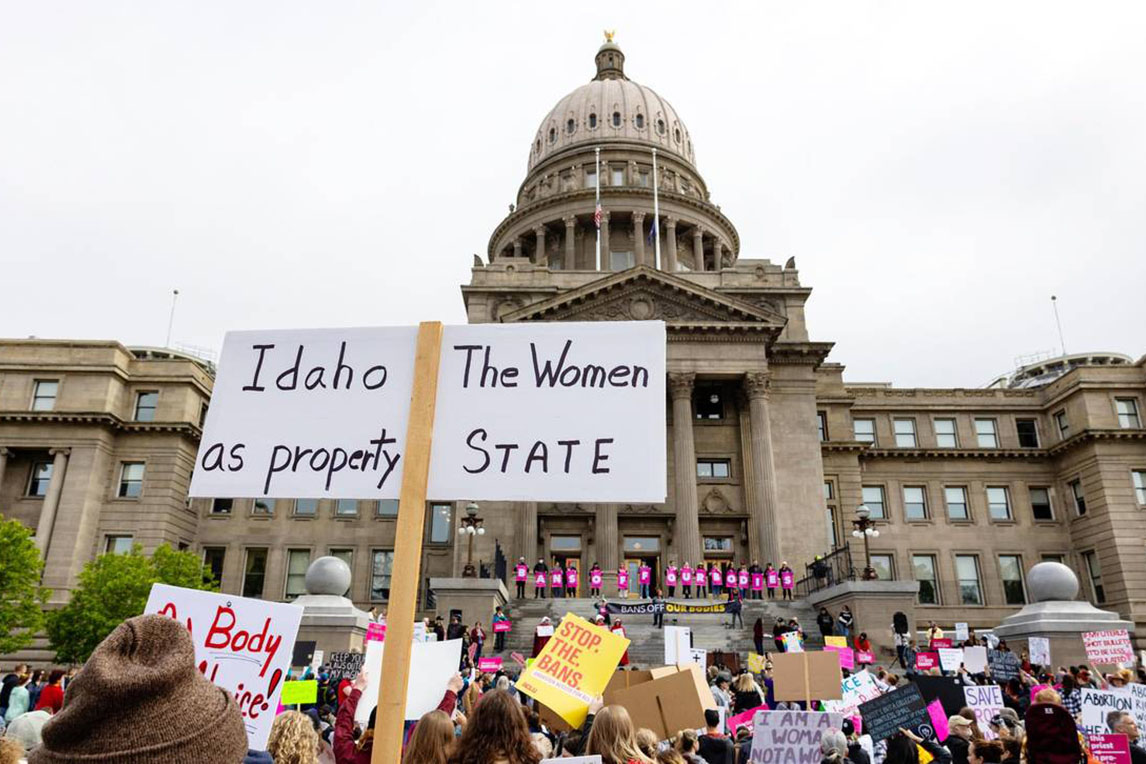
Last week, a mother and teenage son were arrested and charged in Idaho for, among other things, taking the son’s underage girlfriend across state lines to obtain an abortion. Idaho is one of multiple states and counties which – not satisfied with statewide abortion bans alone – have recently passed “abortion trafficking” laws in an attempt to criminalise the act of leaving the state to undergo the procedure. Although the defendants in this case are not technically being charged under Idaho’s abortion trafficking statute, it is being seen as a test case because the prosecutors are using the exact language of the trafficking law in their second-degree kidnapping charges, alleging that “with the intent to keep or conceal [her] from her custodial parent” the mother and son “[transported] the child out of the state for the purpose of obtaining an abortion”. Charging documents also show that law enforcement accessed geolocation data on their phones to prove the mother, her son and his girlfriend had travelled together to an abortion clinic in Oregon. Idaho’s law has been challenged in the courts and could be subject to an injunction any day – and that, combined with the fact that the defendants are not actually being charged with the law itself could suggest “abortion trafficking” laws are just a distraction. But one man’s distraction is another woman’s evidence of the lengths some states go to to punish women and girls for seeking reproductive care, and the people who help them for doing so.
